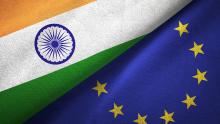Co-creating healthy corridors for Europe’s biggest cities

Urban regeneration often faces challenges in combining sustainability, inclusivity, and community engagement. By rethinking traditional approaches and using nature-based solutions such as parks and green infrastructure, the EU-funded URBiNAT project reconnected fragmented urban communities, supporting happier, healthier citizens through diverse solutions.









